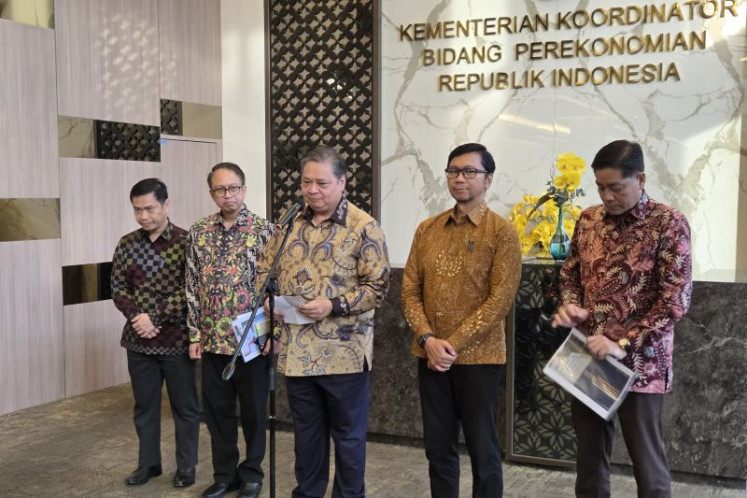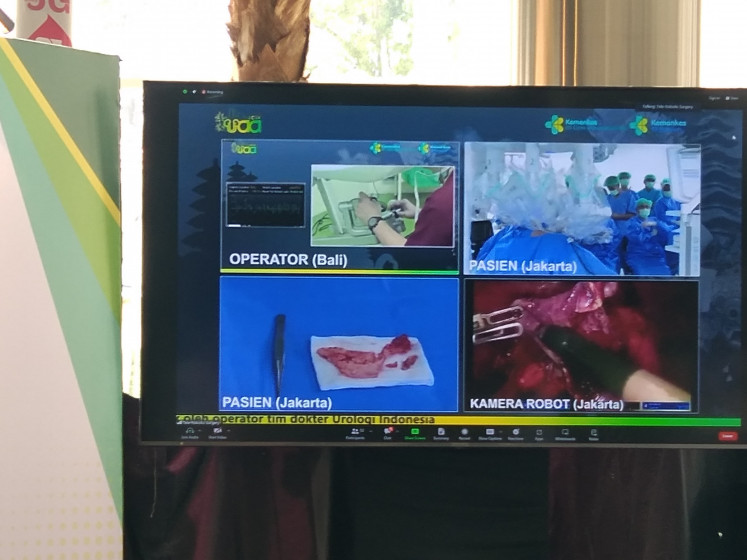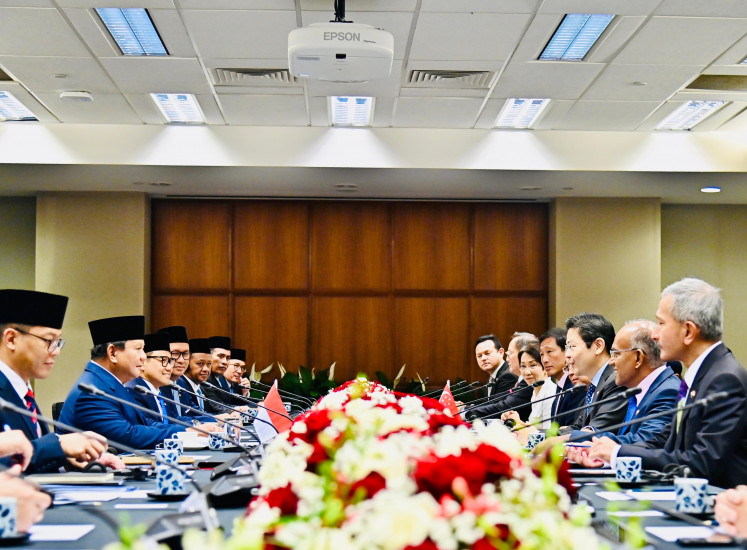Popular Reads
Top Results
Can't find what you're looking for?
View all search resultsPopular Reads
Top Results
Can't find what you're looking for?
View all search resultsLGBT community finds Bali ‘somewhat friendlier’. With conditions.
Members of Indonesia's LGBT community reflect on their altered perceptions of Bali following the very public – and for some, unwanted – furor over the issues unearthed by the Kristen Gray case.
Change text size
Gift Premium Articles
to Anyone

T
he day was like any other for Josephine and Putri. In the early evening after work, they exercised before dinner as usual and then retreated to relax at the end of the day, their phones in hand.
Scrolling through Twitter, they came across a controversy already in full bloom. Opinions had been formed and sides taken in the now-familiar issues surrounding American national Kristen Gray and her deleted Twitter thread on expat life in Bali as a “digital nomad”. By then, the debate had devolved into a virtual shouting match of racial and homophobic remarks.
Like Gray and her partner Saundra Alexander, Josephine and Putri (who prefer to keep their full names private) are a same-sex couple in Indonesia who live together. But the similarities stop there: Josephine is of the Chinese-Indonesian minority while Putri is Javanese. They live in Bandung, West Java, and neither has a passport nor receives an income from the United States.
Both women are in their 20s and agree that the Gray case is an “unfortunate situation” that had been blown out of proportion, and that Gray’s statements about Bali being “queer-friendly” rubbed a lot of people the wrong way.
”The issue is layered. Overstaying a visa, tax evasion, ethics… Yet [Gray] played it up as an LGBT issue. She didn’t even acknowledge the valid arguments about gentrification and its impact on native Balinese,” said Putri.
“It’s easy for them to [move here], but it’s impossible for us to do the opposite. Everybody is entitled to pursue a better life, but you must be aware of the weight your nationality holds,” said Josephine.
Josephine and Putri’s remarks come in the larger context of the wellbeing of Indonesia’s LGBT community. The widespread attention Gray’s case has brought to LGBT issues, they fear, could cause newfound unrest among Indonesian society.
“While she is a triple minority in the US, their racial dynamics doesn’t translate here,” Josephine said, referring to Gray’s personal identification as a “black and queer” woman. “I feel that in Indonesia, what matters most is your education [and] social and economic class.”
“For LGBT couples who are underprivileged in these [areas], it’s not rare that one of them has to fake their gender identity just so they can live together and avoid scrutiny from their families and society. These are the people who became much more vulnerable because of [Gray’s] statement, something that I’m sure she didn’t consider,” she pointed out.
“For people whose gender expressions differ from their assigned sex, their situation might become much harder,” Putri added.
Before Gray’s statements and the ensuing social media uproar thrust Indonesia’s LGBT issues into the spotlight, Josephine and Putri had been planning to move to Bali.
Like many LGBT people, they believed that Bali would be a friendlier, or at least less judgmental, place where they could live, but now they’re growing increasing unsure of their plan.
Living in the shadows
Kai Mata, 24, a singer-songwriter based in Bali who is openly gay, says that while the country faced past criticism for its poor treatment of sexual and gender minorities, these issues were relatable to foreigners and were thus viewed in a more “serious” light.
Mata’s family moved to the US during the May 1998 Jakarta riots that targeted the country’s ethnic Chinese minority, when she was still a baby. She moved back to Indonesia as an adult and speaks out on social media against the country’s attitude toward its minority groups.
“Non-Balinese Indonesians move here [to Bali] to be free, but in reality, we are still in the closet. I also know Balinese queer people who have moved outside the island to be free […], but they are also still in the closet,” said Mata.
She describes LGBT Indonesians as “living in the shadows”.
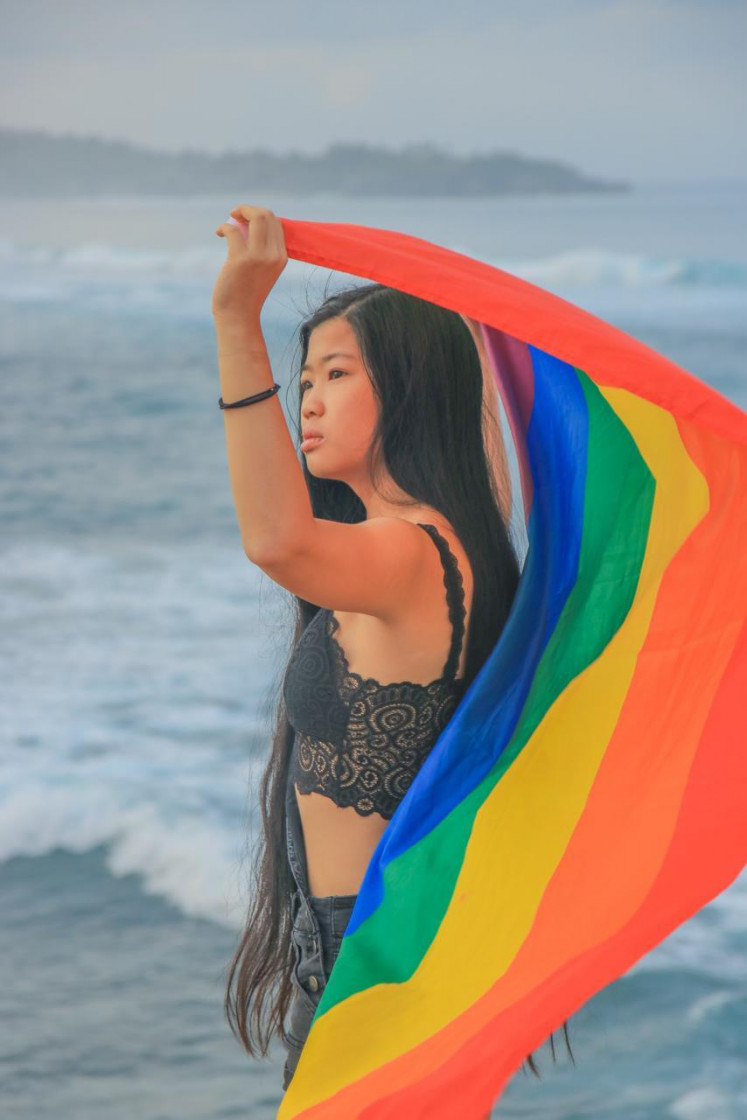
According to Stefan Arestis, cofounder of the gay travel blog Nomadicboys.com, many businesses in Bali are quick to distance themselves from terms like “queer” and “gay” whenever Bali’s LGBT community comes under attack.
For example, he said that many hotels and bars emailed the blog asking to be removed from its travel guide following last year’s crackdown on several “gay-friendly villas”.
“We received many requests from these hotels either to remove them from our guide, or to at least remove the word ‘gay’ from their descriptions. These requests were quite desperate in their language, expressing fear of violent attacks and police harassment,” said Arestis.
One 38-year-old Indonesian American who identifies as “queer” and requested anonymity, while living and working here, urged foreigners to listen when LGBT Indonesians talked about how their personal experiences of oppression could differ widely, depending on their backgrounds.
They also listened when Indonesians spoke about “passport privilege”: “Keep in mind the privilege that foreigners can always go back [to their home countries] when things get difficult, when Indonesians can’t.”
Balinese and Bali’s LGBT community
Meghan Kimoralez, 30, a Balinese transgender woman, was a headliner drag queen at a bar in Bali until the COVID-19 pandemic hit the local tourist industry.
Meghan has not had any sex reassignment surgery and conceals her trans woman identity to pass off as a straight man whenever she visits her village, where she is married with one child. Aside from Meghan’s wife, who supports her, none of her family members know about her life as a trans woman in Denpasar.
An active member of Yayasan Gaya Dewata, a local NGO focusing on LGBT issues, she said that Balinese were generally more tolerant of all people, including LGBT people. But this tolerance came with the caveat that people don’t do anything troublesome, such as provocation from hardline groups.
“I used to live in a kos-kosan [rooming house] in Denpasar where gay men and trans women stayed and our landlord, a Balinese, did not mind as long as we kept it to ourselves and paid our rent on time,” said Meghan.
She acknowledged, however, that the tenants were sometimes jeered and mocked, especially gay men who were seen as “too flamboyant”.
“Interestingly, trans women with long hair and breasts usually did not experience verbal abuse from the local people. Likewise, gay men who could pass as straight were also left alone,” she added.
Alena Perez, a 29-year-old trans woman from East Java, says, “While Bali is not 100 percent accepting of LGBT people, as long as we don’t insult the Balinese, they will leave us alone.”
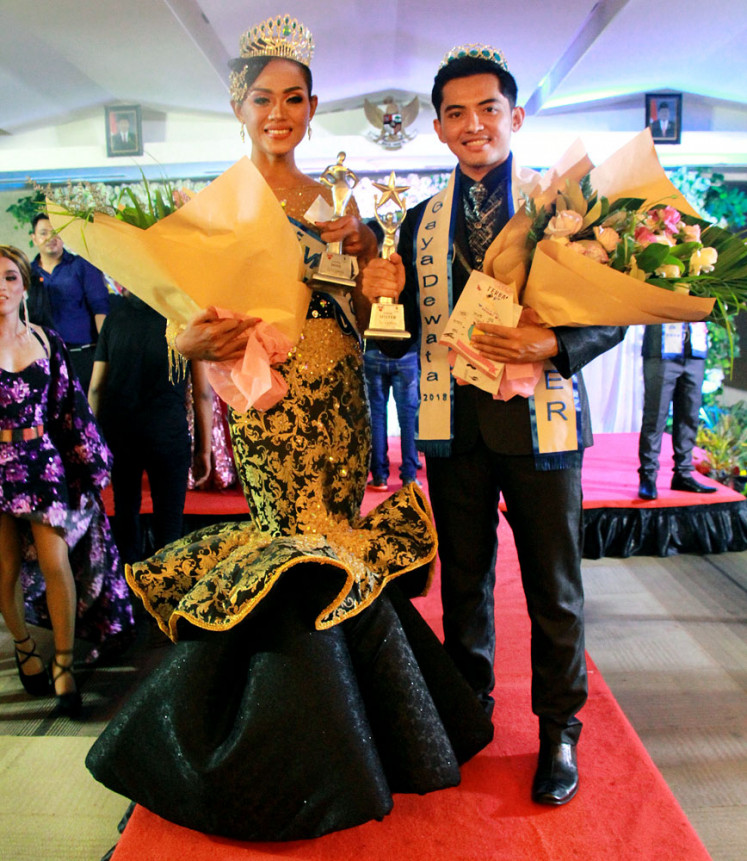
Made, a 27-year-old Balinese man who is proud of being out as gay and lives on the island with his Javanese boyfriend, says that while Balinese generally don’t care much about the sexual orientation and gender identity of non-Balinese Indonesian or foreigners, it is a different case when it comes to one of their own.
“Especially for Balinese men, because we are expected to continue the family line,” he said.
“Even among Balinese gay men, there are some who look down on those who choose to be openly gay, such as myself. They believe that being gay is not forever and at some point, we will all have to settle down and marry a woman,” said Made. He added that he was “one of the lucky ones” because his family had embraced his identity.
An architect in their 20s who requested anonymity shared their feelings about coexisting with LGBT people, specifically in their native Balinese context: “I tolerate LGBT people, but I don’t want my family members to be [one of them].”
For better or worse, this statement seems to encompass Bali’s multifaceted approach to LGBT issues and the island’s LGBT community.







